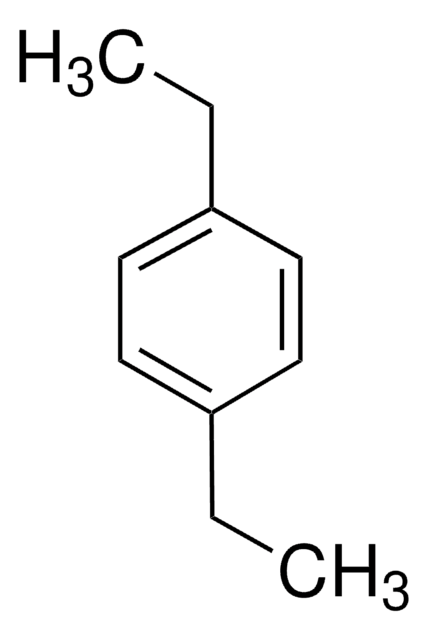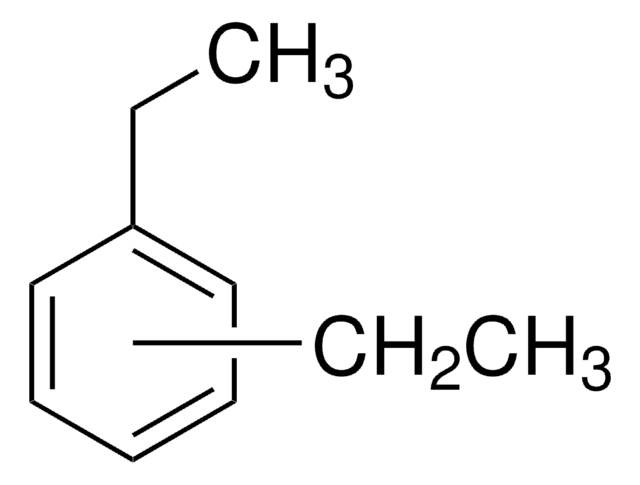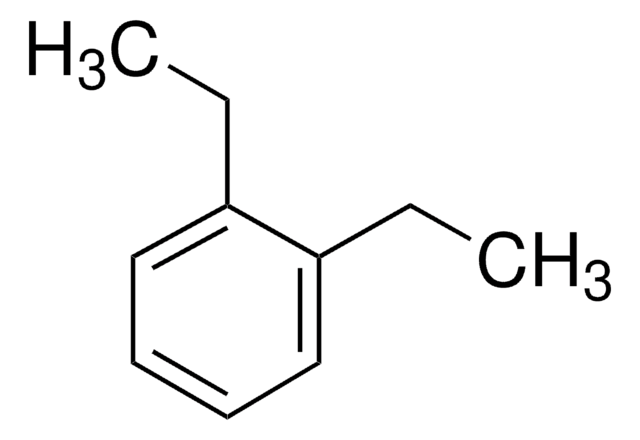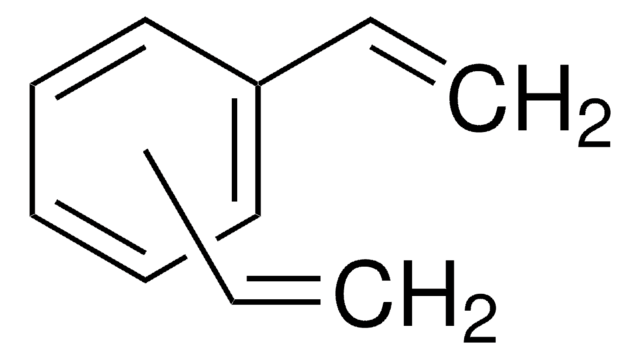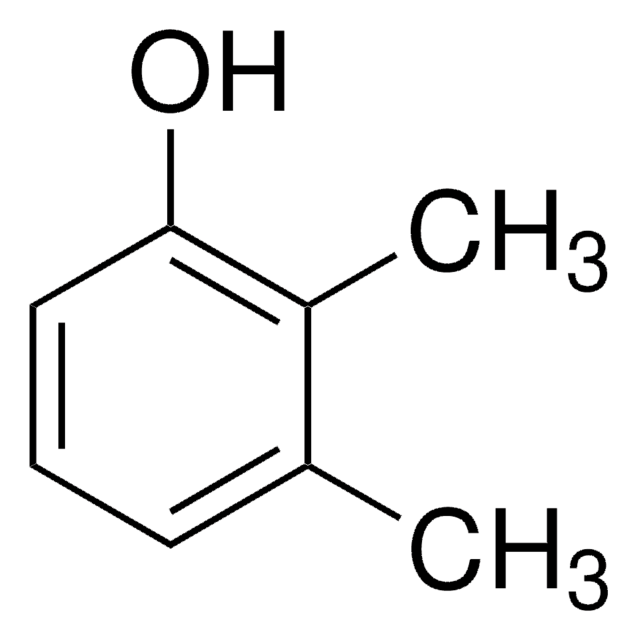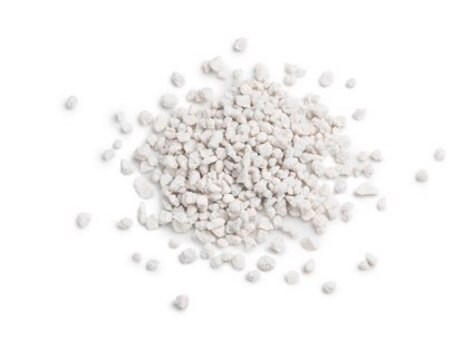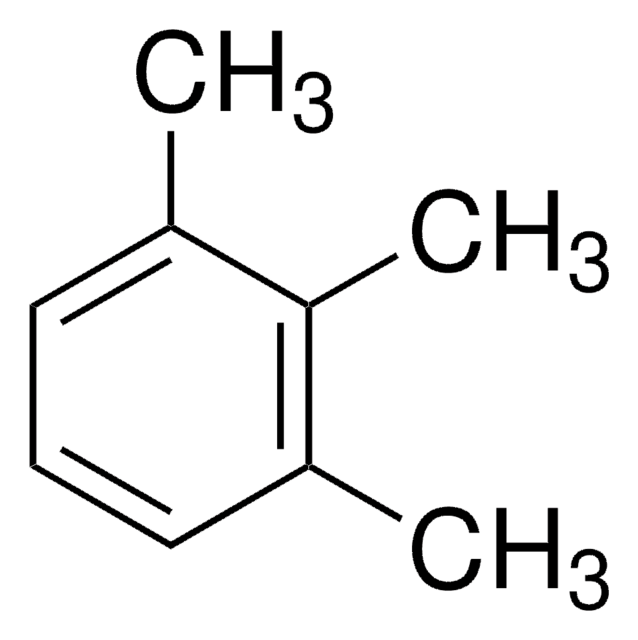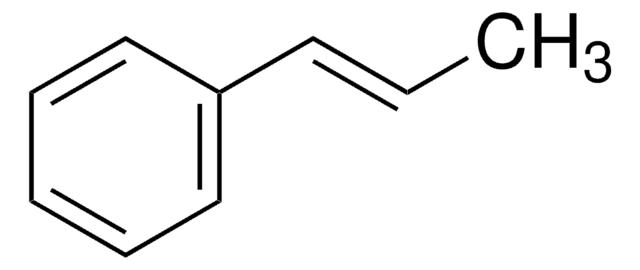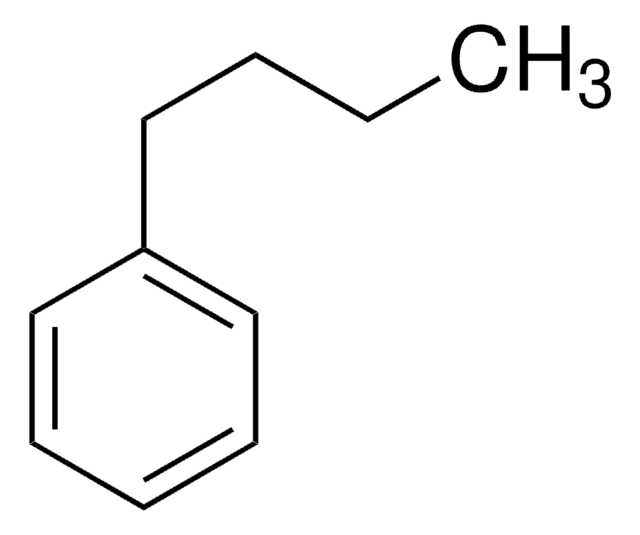97865
1,3-Diethylbenzene
≥98.0% (GC)
About This Item
Produits recommandés
Niveau de qualité
Pureté
≥98.0% (GC)
Forme
liquid
Indice de réfraction
n20/D 1.496
Densité
0.864 g/mL at 20 °C (lit.)
Chaîne SMILES
CCc1cccc(CC)c1
InChI
1S/C10H14/c1-3-9-6-5-7-10(4-2)8-9/h5-8H,3-4H2,1-2H3
Clé InChI
AFZZYIJIWUTJFO-UHFFFAOYSA-N
Vous recherchez des produits similaires ? Visite Guide de comparaison des produits
Description générale
Application
- White spirit samples and Chinese crude oils by comprehensive two-dimensional gas chromatography coupled to time-of-flight mass spectrometry (GC x GC TOFMS) operating on electron impact (EI) mode.
- Outdoor air samples by sampling on adsorbent tubes followed by determination using thermal desorption (TD) combined with GC-MS.
- Virgin olive oils by GC in combination with ion trap EI-MS.
- Atmospheric air samples by GC x GC TOFMS and field olfactometry techniques.
Mention d'avertissement
Warning
Mentions de danger
Conseils de prudence
Classification des risques
Eye Irrit. 2 - Flam. Liq. 3 - Skin Irrit. 2 - STOT SE 3
Organes cibles
Respiratory system
Code de la classe de stockage
3 - Flammable liquids
Classe de danger pour l'eau (WGK)
WGK 3
Point d'éclair (°F)
123.8 °F - closed cup
Point d'éclair (°C)
51 °C - closed cup
Équipement de protection individuelle
Eyeshields, Faceshields, Gloves, type ABEK (EN14387) respirator filter
Faites votre choix parmi les versions les plus récentes :
Déjà en possession de ce produit ?
Retrouvez la documentation relative aux produits que vous avez récemment achetés dans la Bibliothèque de documents.
Les clients ont également consulté
Protocoles
-Xylene; Nonane; Propylbenzene; Mesitylene; 1,2,4-Trimethylbenzene; 1,2,3-Trimethylbenzene; 1,3-Diethylbenzene; 1,4-Dimethyl-2-ethylbenzene; 1,2-Dimethyl-4-ethylbenzene; Durene; 1,2,3,5-Tetramethylbenzene; 1,2,3,5-Tetramethylbenzene; 2-Methylnaphthalene (β)
GC Analysis of Hydrocarbons in Gasoline on Petrocol® DH, Isothermal
Notre équipe de scientifiques dispose d'une expérience dans tous les secteurs de la recherche, notamment en sciences de la vie, science des matériaux, synthèse chimique, chromatographie, analyse et dans de nombreux autres domaines..
Contacter notre Service technique